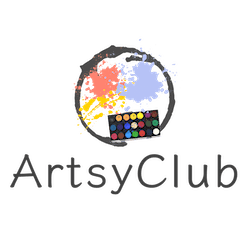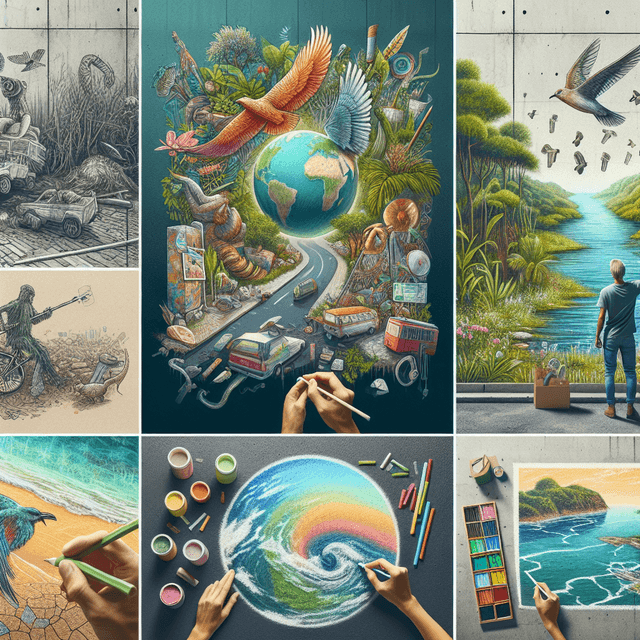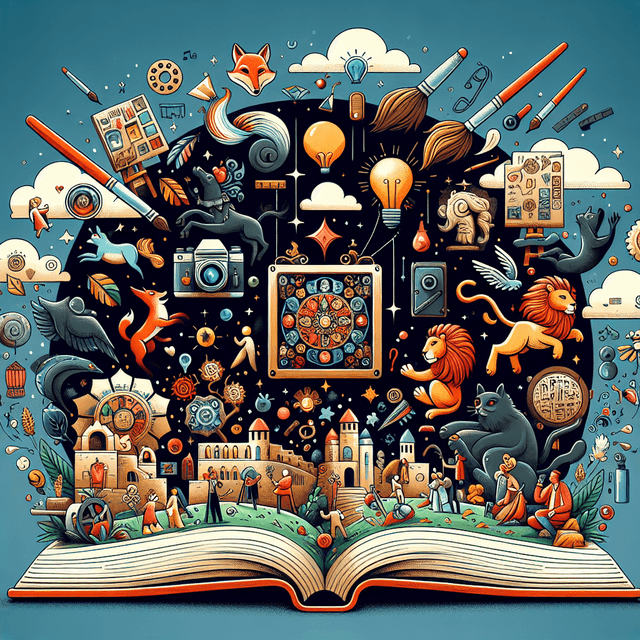Digital Art for Beginners: Entering the World of Digital Creativity
TL;DRDigital art is an exciting and accessible form of creativity that utilizes digital technology as an essential part of the creative or presentation process. This article serves as a comprehensive guide for beginners eager to dive into digital art, covering the basics of what digital art is, the tools needed to get started, different styles to explore, and tips on sharing and monetizing artwork.

Table of Contents
Digital art encompasses any artistic work or practice that uses digital technology as part of the creative or presentation process. It is a broad category that can include everything from digital paintings and illustrations to 3D models and digital animations.
The Evolution of Digital Art
The history of digital art is intertwined with the development of computer technology. From the early experiments in the 1960s to the sophisticated art of today, digital art has evolved rapidly, influenced by advancements in software, hardware, and the internet.
Getting Started with Digital Art
Choosing the Right Hardware
To create digital art, you'll need a computer or a tablet with sufficient power to handle graphic design software. Options range from high-end desktops to portable drawing tablets with styluses designed for artists.
Selecting Your Software
Digital art software is the artist's palette and brush. Beginners can choose from a variety of programs, including Adobe Photoshop, Corel Painter, and Procreate. Each offers unique tools and features tailored to different styles and techniques.
Learning Basic Techniques
Mastering the basics is essential for any beginner. This includes understanding layers, brushes, color theory, and composition. Online tutorials, courses, and practice will help you develop these fundamental skills.
Exploring Different Styles of Digital Art
Pixel Art
Pixel art is a form of digital art where images are created on the pixel level. It's often associated with retro video games and has a nostalgic charm.
Vector Art
Vector art uses mathematical equations to create art that can be scaled infinitely without losing quality. It's perfect for logos, typography, and illustrations that require clean lines and shapes.
Digital Painting
Digital painting mimics traditional painting techniques but on a digital canvas. Artists can simulate various media, such as watercolor, oil, and acrylic, and experiment with an endless array of brushes and textures.
Sharing and Selling Your Digital Art
Online Platforms and Social Media
The internet is a powerful tool for sharing your digital art with the world. Platforms like Instagram, DeviantArt, and ArtStation allow artists to showcase their work, connect with other creatives, and gain exposure.
Monetizing Your Art
For those looking to profit from their digital art, options include selling prints, offering commissions, or creating content for stock websites. Understanding the business side of art is crucial for success in monetization.
Conclusion
Digital art is a dynamic and ever-evolving field that welcomes artists of all backgrounds and skill levels. With the right tools, knowledge, and practice, anyone can begin their journey into digital creativity and potentially turn their passion into a profession. Embrace the digital canvas and let your creativity flow.



